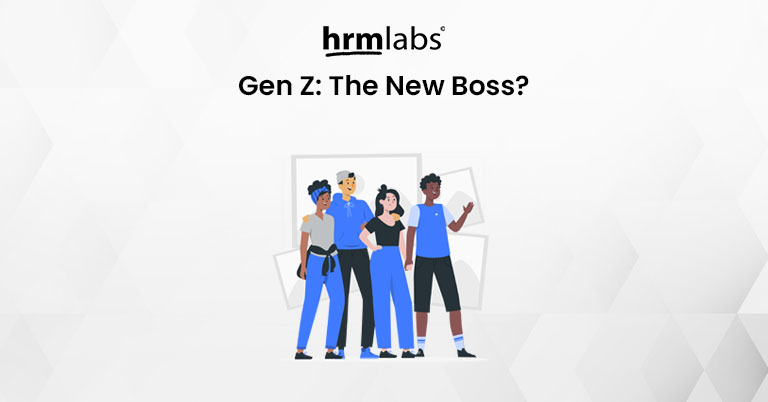There’s a new generation taking the reins in the workplace, and it’s Gen Z! In the Philippines, the workforce is seeing a surge of young, tech-savvy, and forward-thinking individuals entering companies across various sectors. With their unique perspective and modern approach, Gen Z employees are beginning to reshape traditional work environments, bringing fresh ideas and innovative practices that challenge the status quo.
Who Is Gen Z, and What Sets Them Apart?
Gen Z, typically defined as those born between the late 1990s and early 2010s, are digital natives. Unlike previous generations, they’ve grown up with smartphones, social media, and instant access to information. Their fluency in technology gives them an edge in today’s fast-paced, digital-first workplace. They adapt quickly to new tools, platforms, and software, making them incredibly agile in a rapidly evolving business landscape.
But their tech-savviness isn’t the only thing that makes them stand out. Gen Z employees tend to prioritize work-life balance, placing great importance on having flexible working arrangements that allow them to pursue personal interests outside of work. Mental health is another top priority for this generation—they actively seek workplaces that support employee well-being, offer mental health days, and foster a culture of openness and understanding.
In fact, mental health awareness is higher among Gen Z than any other generation. They are more vocal about their needs and expectations regarding mental wellness and are less willing to compromise their well-being for the sake of a job. This shift in mindset challenges employers to rethink their approach to employee health, shifting from traditional benefits to more holistic support systems.
Gen Z vs. Millennials: Similar, but Different
While Gen Z and Millennials share certain similarities—such as their embrace of technology and a desire for meaningful work—there are key differences between these two groups. Millennials, now in their late 20s and 30s, tend to value teamwork and stability. They’ve grown accustomed to working in collaborative environments and are driven by the need for long-term career growth and security.
On the other hand, Gen Z is more independent in their work style. They appreciate the ability to work autonomously and tend to be more comfortable with short-term projects or freelance opportunities. Their approach to career growth is also different: they are more likely to change jobs frequently in search of roles that align with their values and goals, rather than staying at one company for years.
While Millennials may focus more on long-term stability and teamwork, Gen Z is known for individualism and a strong desire to carve out a unique path for themselves. This dynamic creates an interesting contrast in the workplace, with each generation bringing its own strengths to the table.
Building a Workplace That Supports Both Generations
So, how can companies create a workplace culture that supports both Gen Z and Millennials? It’s all about fostering a culture of inclusivity and adaptability. Here are some tips:
- Embrace Digital Tools: Gen Z thrives in a tech-driven environment, so ensure that your workplace is equipped with the latest tools and platforms that make collaboration and communication easy. Tools like Slack, Trello, and cloud-based software can help streamline processes and keep everyone connected, regardless of their working style.
- Offer Flexibility: Work-life balance is critical for both Millennials and Gen Z, so offering flexible working arrangements—such as remote work, flexible hours, or hybrid models—can go a long way in attracting and retaining talent from both generations.
- Promote Mental Health: A strong focus on mental health initiatives, such as offering mental health days, providing access to counseling services, or creating an open dialogue about well-being, can foster a more supportive and inclusive environment.
- Encourage Cross-Generational Mentorship: Millennials and Gen Z can learn a lot from each other. Millennials, with their years of experience, can mentor younger employees on career development and teamwork. Meanwhile, Gen Z can introduce fresh perspectives and digital insights that help companies stay ahead of the curve.
- Provide Growth Opportunities: Both generations value career development, but in different ways. Offering clear paths for growth, whether through promotions, professional development courses, or opportunities to work on exciting projects, can help engage and motivate employees from both groups.
By creating a workplace culture that values flexibility, mental health, and continuous learning, companies can build a harmonious and innovative environment where both Millennials and Gen Z can thrive. Ultimately, supporting these two generations will not only improve employee satisfaction but also drive business success.
HRMLabs: Empowering Your Workforce for the Future
Whether you’re managing Millennials or welcoming the next generation of Gen Z employees, having the right tools to support a dynamic, diverse workforce is essential. HRMLabs offers integrated solutions for managing attendance, scheduling, and payroll, all while ensuring compliance with Philippine labor laws. With features that support flexible work arrangements and mental health initiatives, HRMLabs can help your business adapt to the changing needs of today’s workforce. It’s time to embrace the future—let HRMLabs help you create a workplace where every generation can thrive.

